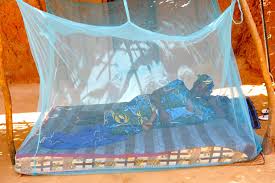In many Nigerian households, insecticide-treated mosquito nets are a common sight. They are distributed freely by governments and donor agencies, widely promoted as one of the most effective ways to prevent malaria. Yet, their true value often slips away, not because nets are missing, but because they are misused.
Musa Daro, a 20-year-old apprentice in Abuja, offers a telling example. Despite proudly claiming to “always sleep inside his mosquito net,” he has battled malaria countless times. On closer inspection, his method turned out to be fatally flawed: rather than securing the net around his bed, Musa simply draped it over himself like a blanket.
His mistake is one shared by many Nigerians. Public health experts warn that an untucked net is nearly as risky as no net at all, as mosquitoes easily slip through the gaps.
According to Ondo State’s Commissioner for Health, Dr Banji Ajaka, correct use is as important as ownership. “It is not enough to have a treated net. It must be aired before first use, tucked in properly, and used every single night,” he explained at the launch of the state’s 2025 net distribution campaign.
This year alone, Ondo is set to distribute over 3.6 million insecticide-treated nets, supported by national and international health partners. But the campaign teams are under strict instructions: every household must be shown not just how to receive a net, but how to use it effectively.
Nigeria’s malaria burden remains the heaviest in the world. Health officials estimate that the country accounts for one-quarter of all global malaria cases and nearly one-third of malaria deaths. Children and pregnant women remain the most vulnerable, with malaria linked to 30 per cent of child deaths and 10 per cent of maternal deaths.
Beyond nets, the challenge is compounded by fake drugs, which continue to flood the market. Ondo State has introduced a drug integrity scanning system to help pharmacies detect counterfeits, a measure officials hope will save lives and prevent resistance.
Other states are also experimenting with different approaches. Plateau has reported a drop in malaria prevalence after treating more than one million children under its Seasonal Malaria Chemoprevention project. In Anambra, health authorities are steering programmes towards local ownership, preparing for a time when international donor support may no longer be guaranteed.
Meanwhile, private actors like the Pest Control Association of Nigeria (PECAN) have stepped up campaigns against mosquitoes, Nigeria’s deadliest disease vector. Working with partners including Rotary International, PECAN has carried out community outreach in IDP camps, fishing communities, and urban slums, while stressing sanitation, elimination of stagnant water, and professional pest control.
What ties these efforts together is the recognition that tools alone cannot defeat malaria. Knowledge and behaviour matter just as much. One wrongly used net—or one counterfeit pill—can undo the work of millions.
Health experts recommend simple but essential steps: air nets before first use, always tuck them under the bed or mat, sleep under them every night, repair tears promptly, and keep them clean and untangled.
Malaria may be preventable and treatable, but as Musa’s story shows, prevention is only as strong as the practice behind it. Nigeria’s path to a malaria-free future lies not just in distribution, but in education, vigilance, and a collective will to close the gap between what is given and how it is used.


